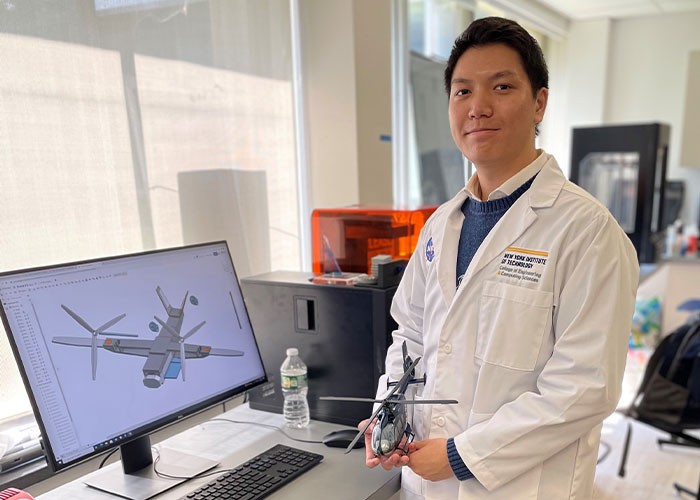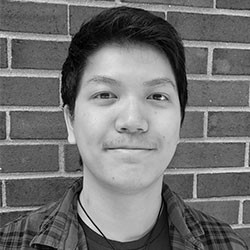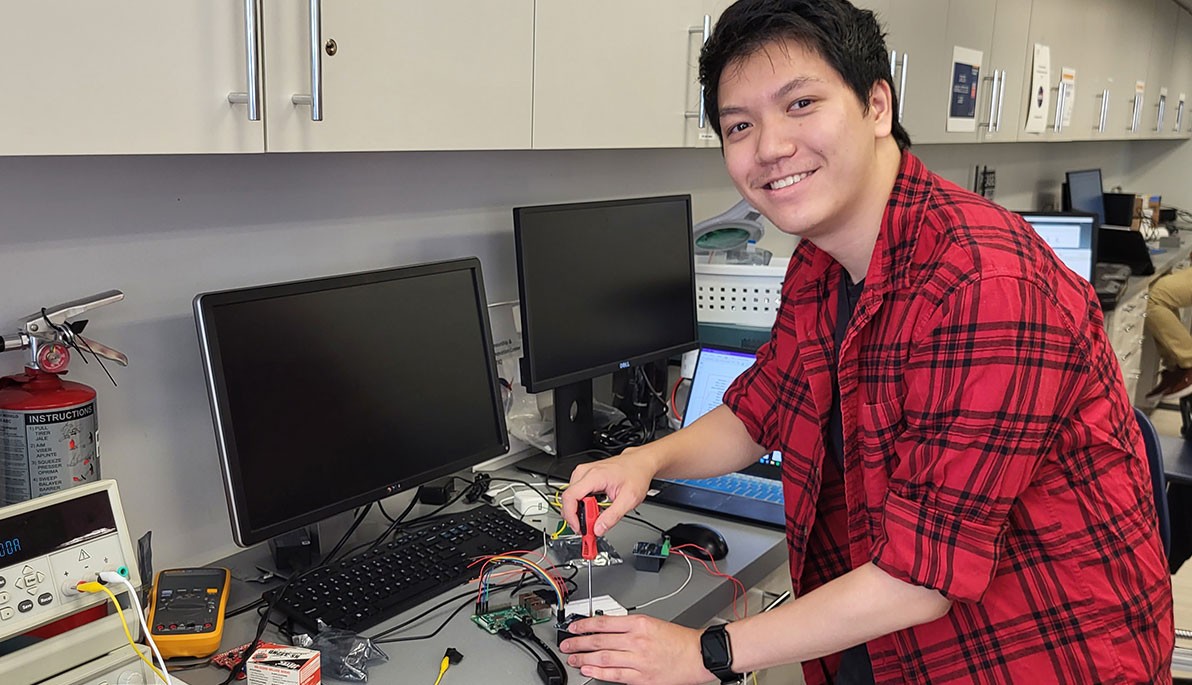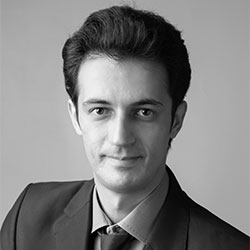Taking Flight
“Ever since I was a kid, I’ve been determined to become an aerospace engineer. My thought process was either I fly as a pilot in the skies, or I make the machines that brought humans to the skies,” says College of Engineering and Computing Sciences student Winston Wang. “It’s a joke within my family that my first word was helicopter.”
Wang is working toward his bachelor’s degree in mechanical engineering with an aerospace concentration, a field of study that aligns perfectly with his interests in aviation and robotics.
“I love aviation, so it was no question for me to pursue a degree allowing me to create gadgets used in the field,” he says.
Wang frequently participated in his high school’s after-school robotics club in Queens, N.Y., and in his free time would create gadgets “with silly purposes.” One such gadget was created during a sleepover when he and his cousins didn’t want to get caught staying up late—a tripwire rigged to a Nerf dart blaster was born.
When the time came to decide where he would pursue his higher education, New York Tech offered a pleasant surprise. He knew he wanted to attend a college that offered STEM-based degrees, but it was a dream come true to discover the university’s aerospace concentration in its mechanical engineering degree.
Supplementing his studies, Wang is working on several projects on the Long Island campus’ Entrepreneurship and Technology Innovation Center (ETIC). His primary project is the Dragonfly vertical take-off and landing (VTOL) drone. This autonomous prototype drone is able to transition between vertical take-off and horizontal flight—a unique aviation design that, according to Wang, has not been explored much in the drone industry. Ideally, the Dragonfly will demonstrate that the ETIC is capable of taking contracts to develop prototypes for the drone industry, such as for package delivery services or the Department of Defense.
Upon completion, Wang hopes the Dragonfly will cover the imperfections of current-day drone delivery systems by being able to perform with increased range and handling capabilities. Possible applications include delivering delicate medical supplies to remote hospitals, while a special cargo attachment to the drone would protect the package from foul weather.
When he’s not working on the Dragonfly, Wang is designing an automatic umbrella prototype as part of an ETIC contract with local entrepreneur Roya Songhorian. The hands-free model, which is also portable like a backpack, can be opened and held automatically while the user has their hands occupied.

Mechanical engineering student Winston Wang holds a model EC-135 helicopter, gifted to him by a family member. Wang says it motivates him to create the next generation helicopter design. On screen is a prototype design of his Dragonfly VTOL drone.
“The ETIC has provided my first professional engineering experience. I was surprised at the amount of teamwork within the lab and the number of skills we have learned outside of our degree’s specifications, like becoming familiar with Raspberry Pi [small computer] kits,” Wang says. “Being a part of the ETIC has helped me prepare and diversify my skill set for a wider variety of career options.”
Prior to joining the ETIC, Wang took on project management for a remote-control (RC) P-47 fighter aircraft for New York Tech’s chapter of the American Society of Mechanical Engineers (ASME). He says the aircraft was meant to be a small project to renew interest and activity in ASME, but has since attracted widespread attention to the club, generated funding, and allowed members to pursue larger projects, like go-karts.
Still a work in progress, Wang suspects the RC aircraft, which has a 4-foot wingspan and length of more than 3 feet, will be ready for test flights within a month or two. The passion project attracted the attention and participation of a small team of students to aid in 3-D designing, manufacturing, and simply indulging in robotics hobbies.
After graduating with his bachelor’s degree, Wang hopes to further his understanding of engineering concepts and applications with a master’s degree. One day, he says, he might study for a culinary degree to improve upon one of his hobbies that brings him great joy—should one ever encounter Wang around campus, they would be wise to ask him for the tomato soup recipe he recently mastered.
But until he takes on further studies, he will pursue a position working at a major aerospace defense corporation like Lockheed Martin, Boeing, or Northrop Grumman. Wang’s ultimate goals include working on advanced military aircraft and contributing to large projects like the American stealth fighter aircraft YF-23 Black Widow and Gray Ghost.
“Engineering is a path that is only achievable with a passion,” Wang advises of the intense area of study. “You cannot succeed or feel satisfied in engineering unless pursuing this field is what you truly want. If it is, nothing will ever stop you from achieving your goal.”











